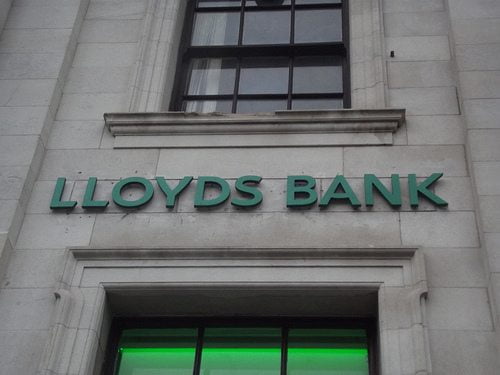

Economy
Lloyds accused of short-changing PPI victims
Lloyds Banking Group has become embroiled in a ‘scandal within a scandal’, after being accused of using a legal loophole to shortchange people owed compensation after they were mis-sold payment protection insurance (PPI).
The PPI mis-selling scandal involved banks selling insurance to customers to protect loan repayments if they were to lose their job or become ill. In many cases customers did not want or need the protection.
Lloyds Banking Group, which is 33% owned by the taxpayer after a £20bn bailout out in 2008, has been forced to set aside around £10bn for its compensation bill.
However, a BBC investigation found that Lloyds has saved more than £60m over the past year by using a little-known rule allowed by the Financial Conduct Authority (FCA).
‘Alternative redress’ allows a bank to assume that customers to who were wrongly sold single-premium PPI policies would have bought a cheaper, regular premium PPI policy instead.
This allows the bank to deduct the cost of the regular premium policy from the compensation package offered to PPI victims.
“Frankly, I’m amazed that this problem has existed throughout the last year and hasn’t emerged into the light,” financial journalist and PPI expert Cliff D’Arcy told the BBC.
“What’s happening here is a taxpayer-sponsored bank depriving taxpayers of their rightful compensation by using a loophole. It’s a scandal coming out of a scandal.”
D’Arcy said such the alternative redress policy could legitimately be used in less than 1% of PPI cases. The bank told the BBC that 11% of offers it made in the fourth quarter of 2013 applied alternative redress.
In a statement, Lloyds insisted it was acting “in line with regulatory guidance.”
It added, “The overturn rates for cases relating to comparative redress are in line with other PPI cases. These cases will continue to be reviewed on an individual basis.”
The Financial Ombudsman said that it is receiving an increasing amount of complaints regarding alternative redress, and advises people who feel they have been incorrectly compensated to contact them.
In June 2013, the bank admitted there were “issues” with the way some of its employees were handling PPI complaints. An undercover investigation by a Times reporter found that staff were “[playing] the system”, so that those looking for compensation over wrongly sold PPI didn’t get it.
The group was also dealt a record fine by the Financial Conduct Authority (FCA) at the end of last year for its supposed irresponsible sales culture.
The group was found to have high-risk features in its advisers’ financial incentive schemes, which were not properly controlled, leading to a £28m fine.
Campaigners say such controversies proves that the bank “is not willing to take responsibility for its mistakes.“
Commenting after the latest revelations, Charlotte Webster, campaign director of the Move your Money, said, “This behaviour is simply out of touch with society, which is why people across the country are putting their foot down and saying ‘no’ to the big banks.”
The Move Your Money campaign lobbies for a more ethical and sustainable banking sector. Its online scorecard, which rates banks according to their impact, ethics and customer service, gives Lloyds 33 out of 100.
“There is huge demand for better banking, millions are already moving their money to financial institutions that show respect for their customers,” Webster added.
Further reading:
Lloyds seeks to recover image with plan to ‘help Britain prosper’
TSB is back – but is it an ethical banking option?
Lloyds pressures regulator for PPI payout time limit
Lloyds Banking Group sets aside further £1.8bn for PPI claims
Customers urged to ditch Lloyds after bank admits ‘issues’ with PPI claims


 Environment12 months ago
Environment12 months agoAre Polymer Banknotes: an Eco-Friendly Trend or a Groundswell?

 Features11 months ago
Features11 months agoEco-Friendly Cryptocurrencies: Sustainable Investment Choices

 Energy11 months ago
Energy11 months agoThe Growing Role of Solar Panels in Ireland’s Energy Future

 Energy12 months ago
Energy12 months agoHow Renewable Energy Can Help Combat Climate Change, According to Indra Energy




























